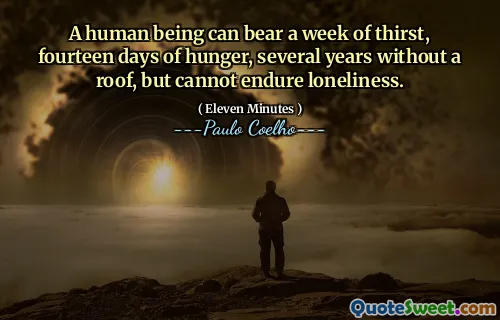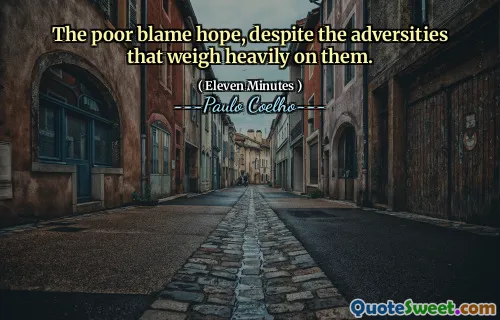
A human being can bear a week of thirst, fourteen days of hunger, several years without a roof, but cannot endure loneliness.
This quote underscores the profound importance of human connection and the intrinsic need for social bonds. While physical hardships like hunger, thirst, and homelessness are undeniably severe and test our resilience, they are tangible and perhaps easier to comprehend or withstand because their effects are immediate and observable. Loneliness, on the other hand, strikes at the core of our emotional and psychological well-being. It isolates us and induces a sense of disconnection from the world and from ourselves, leading to feelings of despair, invisibility, and even existential crisis. The human psyche is inherently social; we are wired to seek companionship, understanding, and belonging. Once deprived of these fundamental needs, even the strongest can feel shattered. Historically and psychologically, loneliness has been linked to increased risks of depression, anxiety, and health decline, illustrating its profound impact. In a society where outward struggles such as poverty or hunger may find solutions through aid and community effort, the silent pain of loneliness can persist unnoticed, yet it can be equally or more devastating. This quote reminds us that nurturing social bonds is essential for genuine well-being, and that mental and emotional health should be prioritized alongside physical health. It calls for a deep reflection on our relationships and emphasizes that no matter how resilient we may seem, human beings have an innate need for connection that, when unmet, can be more damaging than physical hardships.










